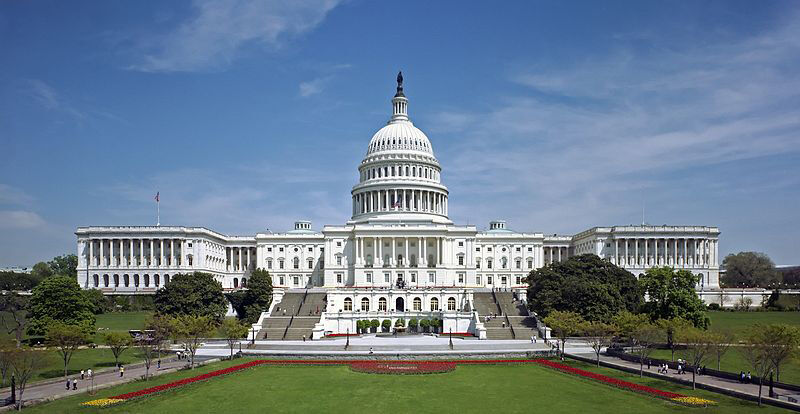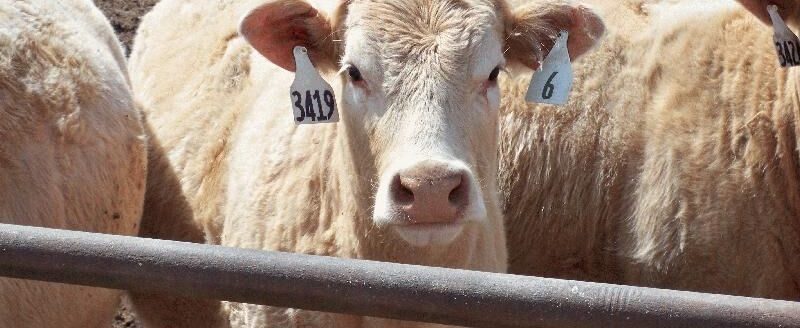Senate ag committee holds cattle market transparency hearing; cattle groups oppose government mandates

The U.S. Senate Committee on Agriculture, Nutrition, and Forestry on April 26 held a hearing to discuss transparency and oversight within cattle marketing, specifically the Cattle Price Discovery and Transparency Act (S.4030) and additional oversight through the Office of the Special Investigator (S.3870).
The hearing has been preceded by months of debate over the need for increased transparency in cattle marketing, and National Cattlemen’s Beef Association said in a release that the conversation highlighted the vehement opposition to government mandates by a majority of U.S. cattle producers.
“The majority of cattle producers have made it clear that one-size-fits-all solutions, such as the government mandate on cattle sales included in the Cattle Price Discovery and Transparency Act, is not the solution the industry is looking for,” said NCBA Vice President of Government Affairs Ethan Lane. “What is being proposed right now concentrates on what works for one region, it simply doesn’t work for the rest of the country.”
Two panels of witnesses appeared before the committee. Panel one consisted of USDA Senior Advisor for Fair and Competitive Markets Andy Green and USDA Administrator for Agricultural Marketing Service Bruce Summers. Panel Two consisted of William Ruffin of Ruffin Farms, Kansas Livestock Association President-elect Shawn Tiffany, Ziesch Ranch owner and operator Shelly Ziesch, and Colorado State University agricultural and resource economics professor Stephen Koontz.
U.S. Sen. Roger Marshall, M.D., introduced Tiffany, from Herington, Kansas, co-owner of Tiffany Cattle Company. Marshall questioned him on the negative implications of moving forward with the bills. In a release, Marshall said he believes that a bill mandating negotiated cash sales is not the answer and will only restrict the way Kansas cattle producers market their cattle.
Marshall also spoke at the hearing about his concerns with consolidation of the industry. He believes the cause was overregulation and the solutions are eliminating burdensome regulations, more accurate labeling of beef, and allowing interstate shipments of state inspected meat.
Tiffany testified in opposition to a government mandate as it could potentially result in fewer marketing opportunities and less incentive for producers to invest in genetics and innovative production techniques that lead to higher-quality beef.
“Every producer wants fair market value for the animals we raise and produce and many of us achieve that true value through value-based alternative marketing arrangements. Accordingly, I do not support a government mandate, of any kind,” said Tiffany. “Regardless of how well intentioned the concept of helping producers obtain fair market value for their animals, the end result will be fewer marketing options for U.S. producers.”
U.S. Sen. John Boozman, R-AR, ranking member of the Senate agriculture committee, said the Cattle Price Discovery and Transparency Act of 2022 (S. 4030) is on the minds of farmers and ranchers as the result of the frustration at the prices America’s producers receive for cattle in relation to the prices consumers ultimately pay for beef products.
“Since the sponsors introduced their first version of the legislation in November 2021, we have spent many, many hours reviewing the proposal, talking with USDA officials, and soliciting input from the nation’s preeminent cattle and beef industry economists,” Boozman said. “My charge to my staff was to learn all they could about the legislation and talk to the experts including cow-calf producers, backgrounders, feeders and packers. We supplemented those efforts with academic analysis.”
He also touched on S. 3870.
“With respect to the Meat and Poultry Special Investigator Act, I must say that I am very uncertain about this legislation’s purpose and goals. Legal experts have shared with me that this newly created office at the Department of Agriculture will just duplicate functions already performed by either USDA, the Department of Justice, the Federal Trade Commission, or the Department of Homeland Security,” Boozman said. “Do we really think that creating yet another government entity is a real solution? Is duplication of responsibilities and confusing the chain of command among federal regulators helpful to our stakeholders? Does the creation of this office discourage the establishment of new small and midsize meat packers?”
Though the focus of this legislation and the sponsors interest is focused on the large packers, what are often referred to as the “Big Four” in the beef industry, there are more than 1,000 small packers across the country who are also subject to the requirements of the Packers and Stockyards Act, he said. Those small businesses are dotted across rural America, and they represent the vast majority of the meat and poultry processing facilities in America. They would also be subject to investigation by this new law.
Additionally, this legislation also impacts the pork, poultry, and lamb industries, he said, and those interests need to be heard.
NCBA said it is committed to turning the focus to solutions with broad industry support, such as a cattle contract library, 14-day delivery, expedited carcass weight reporting, daily formula base price reporting, and incentives for expansion of regional processing capacity.
Senators speak in favor of bills
Sen. Charles Grassley, R-IA, has led the effort on both bills that he said would help ensure independent cattle producers who have struggled to make living while he said the nation’s four largest meat packers have had record profits.
“During my county meetings, I’ve heard from cattle producers at nearly every stop who fear that if changes are not made in this marketplace, they’ll go out of business. This comes down to Congress listening to the needs of our country’s cattlemen—not to the fear tactics of the Big Four Packers. We must pass both the Cattle Price Discovery and Transparency Act and the Meat Packing Special Investigator Act to restore fairness in the cattle market,” Grassley said.
Sign up for HPJ Insights
Our weekly newsletter delivers the latest news straight to your inbox including breaking news, our exclusive columns and much more.
In the hearing, Grassley dove into the history of congressional efforts surrounding cattle market reform, and he attacked the “cozy relationship” between large meat packers and big cattle feedlots.
“In a nutshell: Everyone’s talking about competition. We’re talking about bringing competition to an industry dominated by four packers and a cozy relationship with the big feedlots of four or five states. They want to keep their chain moving—they don’t care whether there’s room for any independent producers or not. They, in turn, don’t care whether those cattle are owned by Wall Street bankers or farmers, and the independent cattle producers in the Midwest are being hurt,” Grassley said.
U.S. Sen. Deb Fischer, R-NE, a member of the Senate Agriculture Committee, also participated in the committee’s hearing.
During her opening remarks and line of questioning, Fischer highlighted how her legislation would ensure every segment of the beef supply chain can succeed. She also noted that while there is near universal concern over the lack of price discovery and market transparency, voluntary efforts to address these concerns have largely failed from a lack of packer participation. Furthermore, instead of being in the driver’s seat, as was claimed by some witnesses, family ranchers often face a “take it or leave it” market. Finally, Fischer heard from a producer witness how increases in negotiated sales have not resulted in the economic losses some opponents have predicted.
Fischer said, “Some today will claim that ‘the seller is in the driver’s seat.’ We all know how out of touch from reality that is. If cattle producers were in the driver’s seat, they would set a price and the packer would take it. Instead, producers take the price that is offered by the buyer. Producers face a take it or leave it market—that is the reality.” To see the full hearing, visit https://bit.ly/3OJWnM4.



